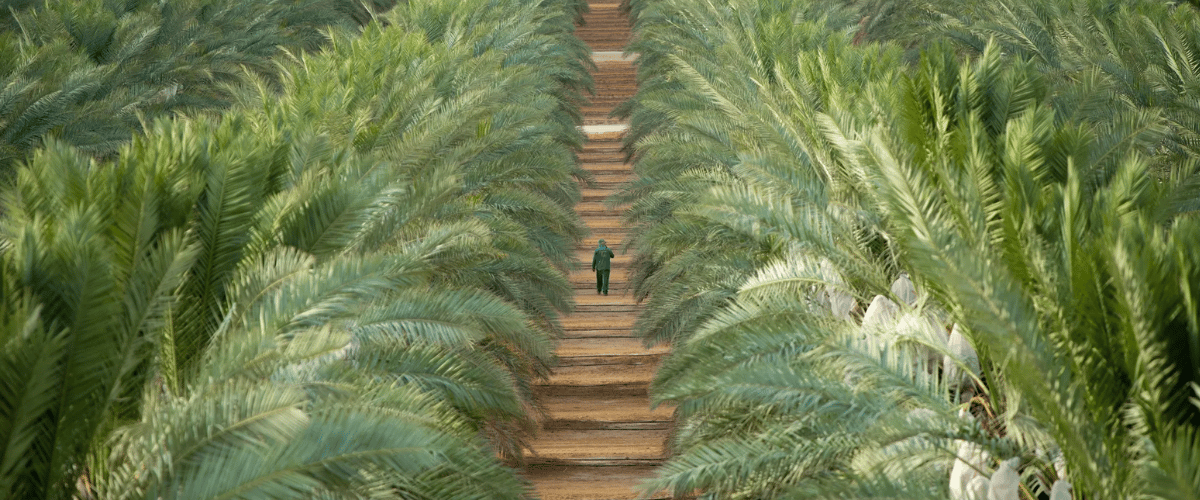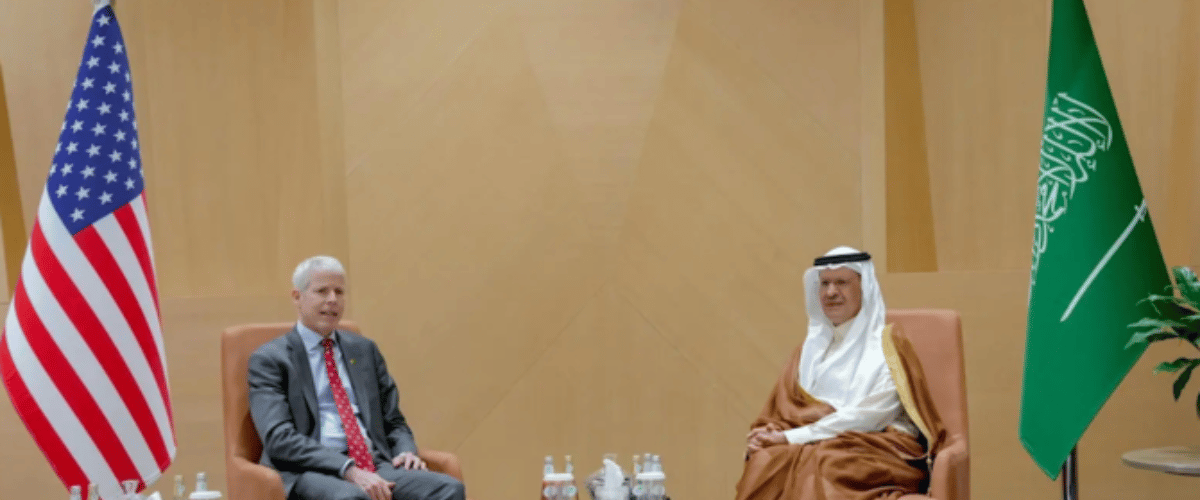- Smashi Business
- Posts
- The Saudi Prince, The ‘Direwolves’, And The Bet On De-Extinction
The Saudi Prince, The ‘Direwolves’, And The Bet On De-Extinction

Monday, April 14, 2025
Happy Monday everyone!
From luxury dates to nuclear deals and synthetic biology, Saudi Arabia is making bold moves across industries. Bateel, the upscale date brand backed by LVMH, is planning to triple its global footprint under ex-Godiva CEO Nurtac Afridi. Meanwhile, the U.S. and Saudi Arabia are inching closer to a landmark civil nuclear agreement that could reshape regional energy dynamics. And from the biotech world, a feature on KBW Ventures — founded by Prince Khaled bin Alwaleed — on backing Colossal Biosciences, the startup behind genetically modified “direwolves” and a de-extinction mission.
Let’s dive in!
But before that: You can join our Whatsapp channel too to receive updates from the business world.
For quick daily updates, follow us on Instagram, and you can watch our Smashi Business Show live every weekday from 10AM onwards (UAE time).
Saudi Date Brand Bateel Plans Global Expansion Under Ex-Godiva CEO, Eyes 500 Stores By 2029

📰 What is it about?
Bateel International, a Saudi luxury date and café brand, is preparing for a major international expansion, the new CEO Nurtac Afridi, the former chief of Godiva, was quoted as saying by Bloomberg.
The company plans to triple revenues by 2029 and increase its global store count from just under 200 to over 500.
Bateel owns a vast date farm northwest of Riyadh with 100,000 palms and is expanding agricultural operations to meet rising demand.
The brand is partially backed by LVMH’s private equity arm, L Catterton, and sits at the luxury end of the date market.
Its products include premium gift boxes and gourmet foods infused with dates, and it recently saw strong demand with a store launch in Seoul.
💡 Why it matters?
The expansion aligns with Saudi Arabia’s Vision 2030, which seeks to diversify the economy beyond oil.
Bateel showcases how traditional Saudi products like dates can be reimagined into global luxury offerings.
The growing global demand for healthy snacks positions Bateel well in key markets like New York, London, and Seoul.
Saudi Arabia produces 3 billion tons of dates annually, with half exported — an industry the government is beginning to spotlight, including through date-based products like a recently launched Saudi cola.
While the Public Investment Fund once showed interest in acquiring Bateel, the firm operates independently without state support.
🔜 What’s next?
Bateel will triple its date palm count and build a new production facility in Saudi Arabia to support the global scale-up.
The company is actively scouting international locations and has already seen 25% year-on-year sales growth.
Internal cash flows will fund the expansion, with CEO Afridi saying there’s no need for external capital at this stage.
There’s speculation that L Catterton may exit its investment, but Afridi suggests the investor remains bullish on the brand’s growth potential.
As global interest in sustainable and healthy luxury foods rises, Bateel is poised to become a Saudi export success story.
ODEUM – A Cutting-Edge Content Studio for All Your Production Needs
📰 What is it about?
Odeum, the content studio built for modern media consumption, partnering with brands to deliver tailored content services while also creating original productions under the Augustus Media network.
💡 Why Choose ODEUM?
At ODEUM, we provide end-to-end media solutions to elevate your brand across multiple platforms.
Video Production: From AI-powered videos to immersive live streaming and CGI storytelling.
Animation Services: Dynamic 2D & 3D animation, motion graphics, and visually striking CGI.
Audio Production: Podcasting, sound design, and professional voiceovers that elevate content with immersive audio experiences.
Original Content Development: Conceptualizing and producing shows, short films, and series that engage and inspire.
Studio Rental: Fully equipped production spaces designed for seamless content creation, offering state-of-the-art filming, podcasting, and photography setups to bring creative visions to life.
🔜 What’s next?
Have a project in mind? Let's make it happen!
Book a studio or discuss your next big idea with us today.
Markets
EGX 30 | 31,174.62 | +1.18% |
DFMGI | 4,966.02 | Closed |
ADX | 9,157.88 | Closed |
Tadawul | 11,592.52 | +0.78% |
US and Saudi Arabia Move Toward Nuclear Cooperation Deal

📰 What is it about?
The U.S. and Saudi Arabia will sign a preliminary agreement to collaborate on developing a civil nuclear programin the kingdom, according to U.S. Energy Secretary Chris Wright, reported Reuters.
Wright met with Saudi Energy Minister Prince Abdulaziz bin Salman in Riyadh and described the two nations as being on “a pathway” to partnership.
The agreement, expected later this year, would lay the groundwork for U.S. involvement in Saudi nuclear development, contingent on a "123 agreement" under the U.S. Atomic Energy Act.
💡 Why it matters?
A 123 agreement permits nuclear cooperation but comes with strict non-proliferation conditions, including restrictions on uranium enrichment and fuel reprocessing — two steps with bomb-making potential.
Saudi Arabia has not yet agreed to these terms, complicating negotiations.
Crown Prince Mohammed bin Salman has previously said the kingdom would seek nuclear weapons if Iran acquired them, a stance that worries arms control advocates and U.S. lawmakers.
The civil nuclear deal was part of a broader strategic package once pursued by the Biden administration, which included normalization with Israel and U.S. security guarantees — though Wright made no mention of that broader deal.
🔜 What’s next?
Saudi Arabia wants nuclear power to diversify its energy mix, reduce emissions, and align with Vision 2030 goals to modernize the economy beyond oil.
The final structure of the deal is still being worked out, with flexibility hinted at by Wright to meet both Saudi and American objectives.
If successful, the deal could mark a milestone in U.S.-Saudi relations, deepen energy cooperation, and reshape the nuclear landscape in the Middle East.
The Saudi Prince, The ‘Direwolves’, And The $10B Bet On De-Extinction: Story of KBW Ventures’ Biotech Play

In the windswept plains of a 2,000-acre compound in Texas, three genetically engineered wolf pups — Romulus, Remus, and Khaleesi — roam under watchful eyes. Bred using the DNA of long-extinct Ice Age predators, they resemble dire wolves, the fabled beasts immortalized by Game of Thrones. But their origins aren’t medieval fiction — they’re the work of cutting-edge synthetic biology. And behind them is one of the boldest biotech investors of the moment: Saudi Arabia’s Prince Khaled bin Alwaleed Al Saud.
Through his venture capital firm, KBW Ventures, Prince Khaled has become an early and vocal backer of Dallas-based Colossal Biosciences — the startup behind the direwolf-like pups and a much bigger mission: to bring extinct animals back to life.
“It is companies like Colossal — big ideas that will truly change the world, not just as a cliché — that are made to be venture-backed,” Prince Khaled told AGBI earlier this year.
Founded in 2020 by serial entrepreneur Ben Lamm and Harvard geneticist George Church, Colossal has captured global attention with a goal that sounds like science fiction: the de-extinction of iconic species like the woolly mammoth, Tasmanian tiger, and dodo bird. But the science is real — and the funding is flowing.
In January 2025, Colossal raised $200 million in its Series C round, reaching a jaw-dropping valuation of more than $10 billion. The company has already raised over $435 million to date — with KBW Ventures joining its earlier rounds. It’s a clear signal of confidence from the Middle East in the future of biotech and synthetic biology.
The “direwolves,” born in October 2024, were created by identifying 20 key genetic traits from ancient dire wolf fossils and editing them into gray wolf DNA using CRISPR. Domestic dogs carried and birthed the genetically modified pups, marking a major milestone in gene-editing capabilities.
Yet, Colossal’s work isn’t without controversy. Critics argue that the animals are not true “de-extincted” species but designer hybrids — raising questions about the scientific ethics and purpose behind such projects. Even so, experts agree the underlying tech represents a significant breakthrough in synthetic biology, with potential applications in conservation, medicine, and beyond.
Prince Khaled sees opportunity. KBW Ventures has previously invested in other future-forward companies, including Beyond Meat and Geltor — both pioneers in sustainable, animal-free proteins. With global biotech VC funding surging to $28 billion in 2024, he believes the sector is only just beginning to take off.
“The sector is going to get more and more lucrative as advancements continue,” he said.
As Saudi Arabia continues to diversify its economy through Vision 2030, KBW’s stake in Colossal reflects a growing interest in frontier tech — not just for returns, but for reshaping the future.
Whether or not Colossal eventually revives a woolly mammoth or brings the dodo bird back to life, one thing is clear: the next chapter in biotech evolution will have a Saudi signature on it.


